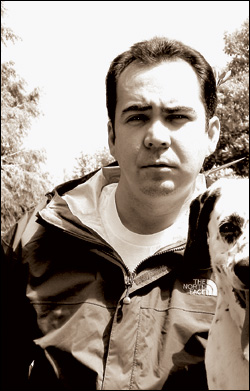The medical-billing office worker who blew the whistle on the University of Washington’s Medicare/Medicaid/Tricare fraud says he’s underwhelmed by a review board’s new 99-page report on the scandal and is now working to help expose additional fraudulent billings. The UW panel found no conspiracy and only “rare instances” of intentional fraud in four-plus years of overbilling government and private insurers, as well as individual patients. The federal government estimates the overbilling was worth as much as $100 million. Though the fraud led to a top-level cover-up, the federal criminal prosecution of two doctors, and cost UW $62 million in fines and legal fees, the outside panel, appointed by medical school dean Paul Ramsey, said the major issue was lack of oversight.
“I’m neither surprised nor am I impressed” by the July 21 report, says Mark Erickson, the Seattle whistle-blower who repeatedly went to UW bosses with his overbilling accusations and, finding only disinterest, eventually went to federal authorities. He is still working the case, having signed on as a consultant to private insurers who are reviewing their UW reimbursement records. (One private insurer, Premera, last year told Seattle Weekly it had been unaware that court records showed it and other private insurers were also overbilled by UW. Erickson says the private companies are now attempting to recover the overcharges, whose amounts are unknown.)
“When I met with the review committee, I expressed my concern that the committee lacked a mechanism for seeing that their recommendations were enforced,” says Erickson, 36, who collected about $7 million for his role in exposing the fraud under the False Claims Act. A panel leader told him they didn’t want their recommendations to cause “a mass exodus” of valued UW medical personnel, Erickson says. “This implied to me that whatever conclusions the committee came to, that their ensuing recommendations would be scaled back if need be.”
The panel was formed a year ago, a few days after Seattle Weekly reported new accusations by Erickson and his former billings-office co-worker, Swannee Rivers, who also tried to blow the whistle. (See “Everybody Knew,” June 9, 2004.) Rivers, too, is disappointed by the report. “After having pushed for so many years to have my voice heard by those that promised me changes for the better,” she says, “I cannot tell you how angry I felt upon reviewing panel findings that gave the appearance that I was a disgruntled employee attempting to present my manager in a negative light. Management was good at doing that themselves—they didn’t need me to assist.”
Rivers and Erickson were the first and second persons to come forth with evidence of the “up-billing” that existed at least from 1999 into 2003—the period targeted by federal investigators. The center of the fraud was UW Physicians, where Rivers and Erickson worked, and another private billing agency, Children’s (Hospital) University Medical Group, both employed by the UW. The systemic charging of higher fees for procedures can be traced back more than a decade, however: Dr. Ron Maier raised questions about 1993 overbilling at the UW-run county hospital, Harborview Medical Center. By 1995, Rivers thought it was out of hand and detailed the process in a seven-page letter of resignation, which, she said, her manager laughed at. A few months later, in December 1995, Erickson first tried to expose the system within the UW—an effort he repeated in subsequent years before going outside for help.
Erickson says he “strongly” disagrees with the review committee’s ambiguous finding on document shredding. A recording from a wire he wore for federal investigators and his own involvement corroborated the shredding. Spot audit reports, for example, routinely turned up alarming problems and error rates that should have led to broader investigations, says Erickson. But administrators and UW attorneys agreed the reports should be destroyed. His boss, Erickson says, “explicitly told me to shred the original audits, replacing them with sanitized versions. She was especially nervous about finding and shredding my predecessor’s audits, as they were retrospective in nature. No changes were to be made to those audits. I was told to just find them and ‘make them disappear.'” Erickson kept copies, however, that he later took to authorities.
Dean Ramsey, Erickson thinks, “knew or should have known what was transpiring in his departments. At the very least, he’s lost the full support and confidence of the faculty and staff of UW Medicine, and that represents a failure which should lead him to step aside.” The panel made no recommendation on Ramsey’s fate, urging him to appoint a watchdog to prevent any future fraud.








